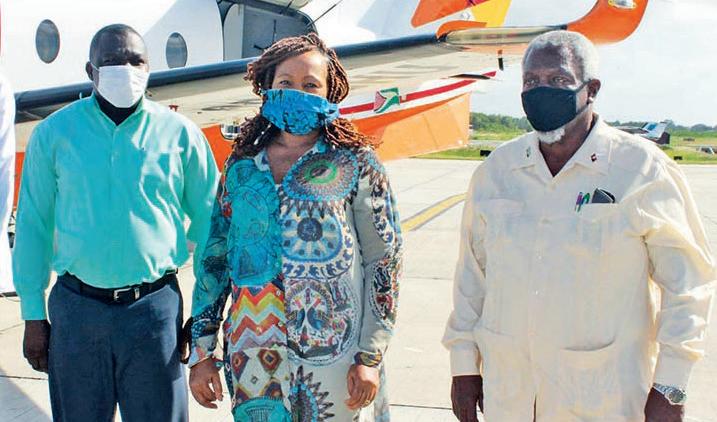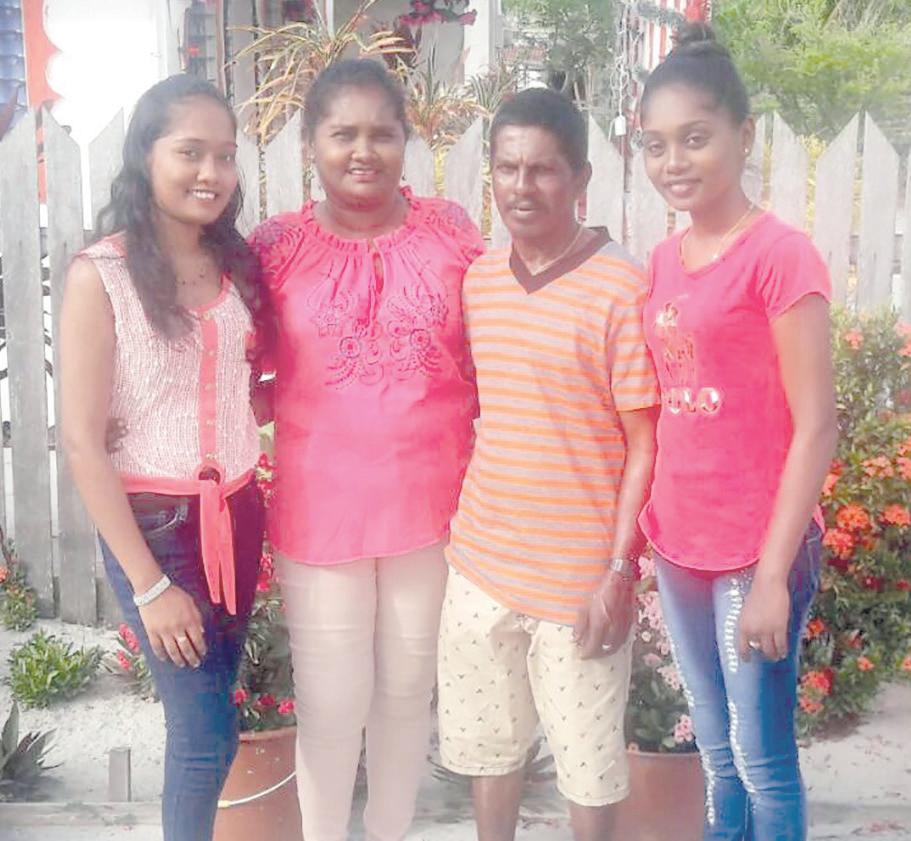
14 minute read
in 24 hours P
PAHO Country Rep fears possibility of COVID-19 endemicity
The gradual increase of COVID-19 cases might have been viewed as a positive sign for Guyana, as opposed to an uncontrollable health crisis.
However, Country Representative of the Pan American Health Organisation (PAHO), Dr William Adu-Krow has viewed this under a different light, fearing that the country might develop an endemicity to the virus rather than eliminating it completely.
During a forum hosted by the Texila American University on Friday, the PAHO official recognised the rate at which cases were detected locally, calling it an insidious one.
“Now we have a system in place and I’m hoping we’ll be able to catch new cases as early as possible. If we do, I think we are on the route to getting somewhere that we can all live with. In terms of my outlook, initially what I feared was we in Guyana did not have this exponential rise that many countries were having. Ours was an insidious one; insidious because we were not very serious with the measures being adopted.”
Due to the slow progression of the virus and coupled with non-adherence to guidelines in some sections of the population, he said there were apprehensions that the country was entering a state of endemicity – meaning it would linger and become confined to the region.
“Some people were agreeing to the measures, some people were flouting it with impunity and therefore, even though the measures were working, there was just a slight increase all the time. My fear was that we were entering into endemicity, meaning that you would never get over COVID-19. It would be grad
PAHO Country Representative, Dr William Adu-Krow
ual and then become a part of this life, like HIV (Human Immunodeficiency Virus) or
No new test for COVID-19 has been conducted within 24 hours in Guyana and the positive cases have remained at 183.
On Saturday, statistics from the Public Health Ministry’s dashboard showed that the number of samples tested is 2048 with 1865 returning negative – the same that was published on Friday.
Presently, 102 persons have recovered, while there are 69 cases in institutional isolation and 24 cases in Institutional quarantine. There are no patients in the COVID-19 Intensive Care Unit (ICU). Deaths from the virus also remained at 12.
This past week, there were a total of 24 new cases and a further breakdown shows that 11 teachers from the Santa Rosa Primary School, Moruca sub-district, Region One (Barima-Waini), are now infected with the coronavirus.
All positive cases were diabetes. That is not what we want,” the health official expressed.
According to Dr AduKrow, Guyana should seek to have a complete eradication of the virus – a target which can be easily achieved through reduced transmission.
He added, “This is a transmission that can be halted. With everybody on board, we should be able to halt it. The good thing is that it can be halted with non-pharmaceutical means and therefore, it is my view that if we all apply ourselves; we should be able to do it.”
It has been over 13 placed in institutional isolation and the remaining 26 teachers from the school were asked to self-quarantine.
The Ministry would have announced on Friday that a decision was taken to reverse the lifting of the non-curfew measures in Regions Five (DemeraraMahaica) and Eight (PotaroSiparuni). This means the 6 pm to 6 am curfew measures would remain in all administrative regions until directed otherwise.
These were the only two coronavirus-free regions in the country, but given the surge in cases, officials opted to reinforce the measures.
Chief Medical Officer, Dr Shamdeo Persaud would have also reminded that in Guyana, the male population is most affected by the disease, along with Regions One (Barima-Waini), Four (Demerara-Mahaica) and Seven (Cuyuni-Mazaruni).
In their analysis, the mining community is now weeks since Guyana recorded its first case of the virus and presently, the statistics are close to the 200 mark. Until July 2, the current COVID-19 measures and curfew will remain in place, as directed by the National COVID-19 Task Force (NCTF).
Public transport will continue to operate at 50 per cent passenger capacity as social distancing rules and the wearing of face masks must be maintained.
Moreover, gatherings of more than five persons remain prohibited, while the stay at home order also re
Early pension payment for senior citizens
As the COVID-19 pan(Mahaica-Berbice), Six (East When collecting paydemic continues to Berbice-Corentyne) and 10 ments at these locations, persist, senior citi(Upper Demerara-Berbice). the GPO has had difficulties zens are advised that their Those whose surnames in the past with maintainmonthly pension payment begin with the letters A to ing standard social distancfor July will be distributed D can uplift their pension on ing guidelines and ensuring at an earlier date. Monday, June 29; followed that pensioners wear masks
In a notice published, the by letters E to K on Tuesday, when collecting their vouchSocial Protection Ministry June 30; letters L to P on ers. announced that old age penWednesday, July 1; Q to T on In fact, it was reported sion payments will begin on Thursday, July 2 and those that despite warnings for seMonday, June 29, 2020, at with letters U to Z on Friday, nior citizens to avoid visiting Guyana Post Office branchJuly 3. post offices during the coroes countrywide. This alphabetical system navirus threat, hundreds of
The alphabetical syswill only be used during the pensioners were seen flocktem, using surnames, will first five payment days and ing various postal locations continue, for senior citiafter, senior citizens will be countrywide. zens to receive their payallowed to cash their coupon The elderly folks were ments during the first five on any day. waiting in long queues to payment days of the month The pensioners were aduplift their pension payat post offices in Regions vised to ensure social disments. Senior citizens have Two (Pomeroon-Supenaam) tancing is practiced at all been advised to authorise a Three (Essequibo Islandstimes and are asked to wear younger family member to West Demerara), Four protective masks and sanicollect their pension on their (Demerara-Mahaica), Five tise their hands before entry. behalf.

No new COVID-19 tests conducted in 24 hours
mains in effect.
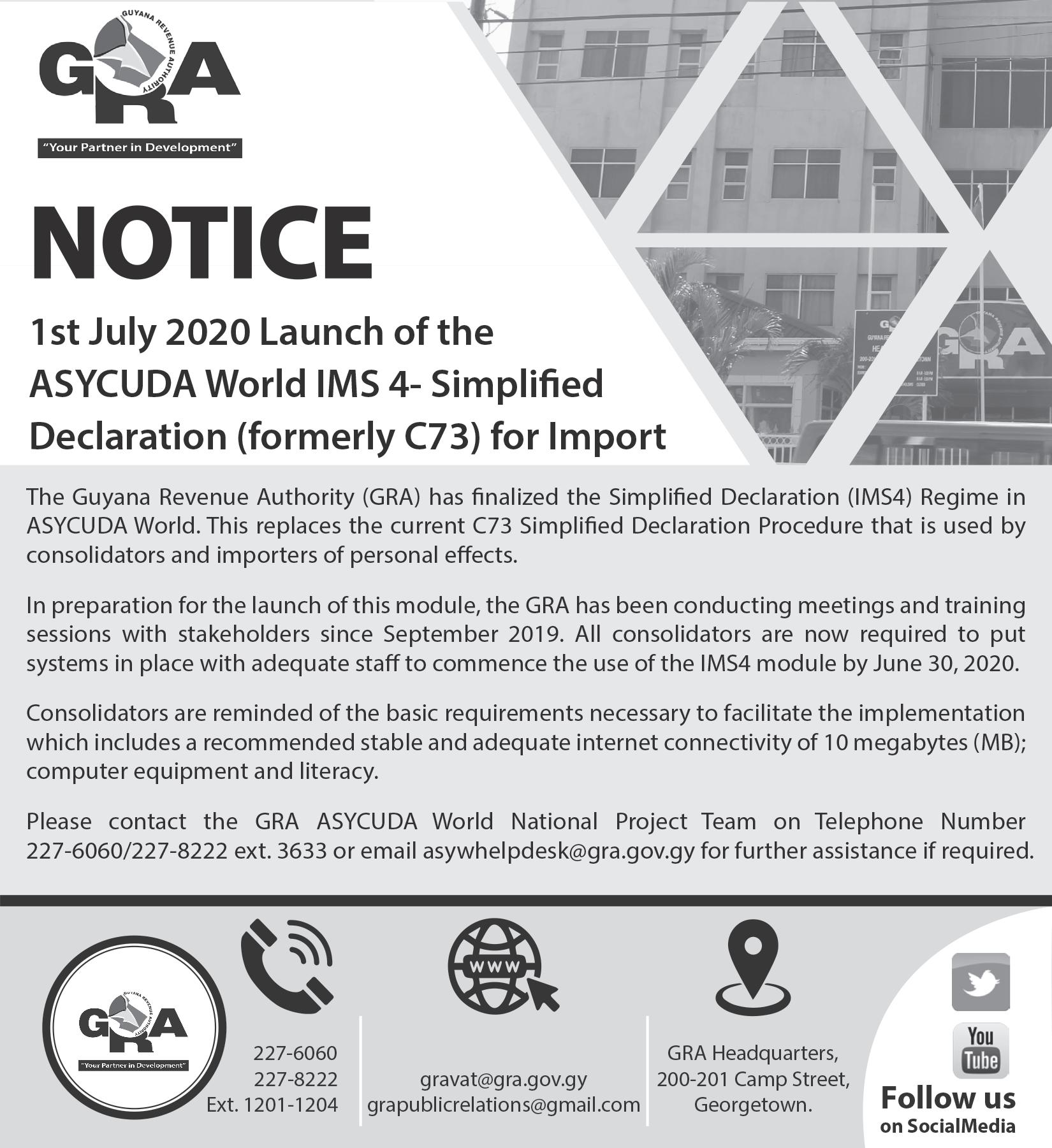
one of the “most vulnerable groups” for the spread of the disease.
“I wish to remind you that we are at a much higher risk because COVID-19 is rampant in our bordering countries and we have not seen a reduction but a constant increase in the number of positive cases. Residents in Region Seven, I wish to make a special appeal to you as the situation in your community is of grave concern to the Ministry,” he highlighted.
He said the CuyuniMazaruni Region, notably Aranka, has the second-highest number of confirmed cases. The mining activities, the continuous movement of people and services in and out of the area also make it extremely likely for the disease to spread.
Globally, the total number of cases is 8,385,440 with 450,686 deaths. In the region of the Americas, there are 4,092,526 confirmed cases with 212,517 deaths.
The road to recovery and rebuilding Guyana

Guyana has endured, in the political environment, one-and-onehalf years of a roller coaster ride that was characterised by great degrees of political uncertainty that dampened investors’ confidence and largely affected businesses in general. It is without doubt that these effects have been painful for the country and its people. It appears now that, finally, this elections saga is coming to an end, and a new Government will be sworn in. A smooth and peaceful transition is expected, and the political economy is expected to revert to stability.
Before addressing today’s topic, this columnist wishes to extend sincere congratulations to the incoming President, Dr. Irfaan Ali; to the Party’s General Secretary Dr. Bharrat Jagdeo, for his resilience and steadfast stewardship during this period, which served to preserve Guyana’s democratic principles and the country’s legitimate international standing; and to the entire team of the new regime which is soon to be installed. On this note, the incoming regime has a humungous task ahead of it: to firstly address the impacts of the COVID-19 pandemic, and to focus on an economic recovery plan and nation building for a country that has been badly wounded for the last one and a half years.
While proponents would argue that the economy had indeed recorded consecutive and increasing growth rates in real GDP over the last five years, those were driven largely by the oil and gasrelated sector; inter alia, increased levels of foreign capital inflows into that sector, and in large part the performance of the mining and construction sector. Notwithstanding, this outturn does not necessarily translate widely to improved standard of living for the vulnerable and the working-class people, or broad-based and inclusive growth. GDP does not measure progress and human development, and is certainly not a good measure of standard of living. Essentially, GDP measures spending in four different aspects; namely: Government spending, investment (foreign and local), consumption/ household expenditure, and net-exports, which in the case of Guyana has always been a deficit position. The country’s ability to generate adequate supplies of foreign reserves depends largely on its national competitiveness to produce goods at internationally competitive prices to boost export earnings. The major inhibitor here is the high cost of energy in Guyana, which is among the highest in the western hemisphere. This inhibits the private sector from making investments to produce more value-added goods and services, which in turn would enable greater levels of job creation.
High levels of public debt, coupled with a decline in Government revenue - attributed largely to the adverse economic effects of COVID-19 and the political uncertainties -- would thereby constrain Government’s ability to honour its debt obligation; and if so materialised, this leads to a bankrupt State.
With this in mind, when Government’s revenue has to be redirected to service high levels of debt, this has implications for vulnerable groups, working-class, middle-income families, and the business sector.
The level of non-performing loans in the banking sector, for example, is an indicator of the vulnerabilities and economic hardships, some degree of the gravity thereto, upon which vulnerable groups of people, the working-class and some sections of the business sector have been facing over the last five years. To this end, the level of NPLs increased by over $22 billion in the last ten years; and the business sector alone accounted for 66 percent, or close to $20 billion, and the household sector accounted for 30 percent, or $4.5 billion, representing an increase of 75 percent from the 2010 position.
To interpret this differently, non-performing loans effectively means that individuals and businesses are virtually so bankrupt that they are unable to service their debt obligations because of a number of factors, including loss of income to the extent that 17% or approximately 42,500 of total average households have been pushed into poverty. In 2010, just about 4 percent of total householders were in this position, as determined by using the level of NPLs in the banking sector that were concentrated in the household sector as a benchmark. This, of course, does not include the more vulnerable groups.
Despite the growth in GDP, the level of poverty has grown steadily over the years, and would only worsen with the impact of COVID-19, especially in the absence of adequate fiscal support packages on the part of the Government.
Governments have an obligation and responsibility to provide public goods and services -- where such goods and services serve as the enabler that creates a conducive environment in which businesses thrive through productive development – designed to foster the emergence of new industries and businesses. In so doing, Government needs to allocate resources in public infrastructure, roads, bridges, housing, and industrial development sites for example. These, however, should not be limited to the rehabilitation of existing infrastructure each year, as is the case in Guyana, owing to a series of factors, including substandard work, which translates to a lack of proper mechanisms in place to ensure value-for-money projects. Rather, public investments need to be linked to a national development strategy in which are created new industrial zones that would facilitate commerce, and, by extension, the creation of wealth designed to achieve the sustainable development goals – mainly poverty reduction.
By: JC. Bhagwandin, MSc., Exec Cert. (The author is a macro-finance and research analyst, lecturer and business & financial consultant. The views expressed are exclusively his own and do not necessarily represent those of this newspaper and the institutions he represents. For comments, send to jbbankingadvice@gmail.com).
Change Guyana tells Granger “salvage” respect he has left
…advises him to put Guyana first, concede defeat
Change Guyana P r e s i d e n t i a l Candidate, businessman Robert Badal, who contested the March 2 elections has urged caretaker President David Granger to concede defeat and salvage whatever respect he has left.
Badal made this call on Saturday, one day after two other coalition politicians broke ranks from the party and conceded that the People’s Progressive Party (PPP) had won the elections.
“David Granger must now concede victory to the winning PPP and allow for the inauguration of Dr Irfaan Ali as President of the Cooperative Republic of Guyana. The results of the Caricom supervised recount of the votes cast at the March 2, 2020, National and Regional Elections are irrefutable, confirming a PPP victory,” Badal said in a statement.
“Rather than hanging to the last straw, legal and otherwise, to remain in political office, Mr Granger must now put the country he has led for five years first and salvage whatever respect he may as a former President of our beloved country,” Badal said.
According to Badal, any further foot-dragging on the part of Granger would deal further blows to A Partnership for National Unity/Alliance For Change’s (APNU/AFC) credibility as a political party. It would also affect their effectiveness as an Opposition party in Parliament.
Credibility of elections
He further noted that the international community, inclusive of The Carter Center, the Commonwealth Group, Caribbean Community (Caricom), the Organisation of American States (OAS) and the European Union (EU), has confirmed the credibility of the elections. According to Badal, the pressure is on
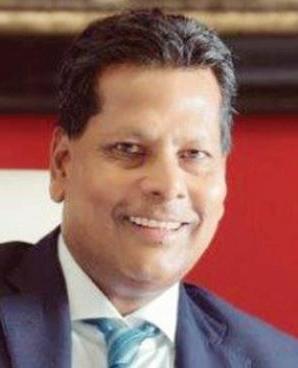
Change Guyana Presidential Candidate, Robert Badal
APNU/AFC.
“The Guyanese economy and social fabric have undergone enormous hur
dles since the No-Confidence Motion eighteen months ago with adverse consequences for businesses, investments and job creation. The disruption this has created has affected the livelihood and image of Guyanese and Guyana internationally,” Badal said. He added that it
Caretaker President, David Granger
is time that Guyanese rally around the elected and legitimate Government and take its place among the league of democratic countries.
According to Badal, the two groups must join hands to heal the racial wounds and formulate a joint economic and social agenda - one that lifts Guyanese out of poverty, removes the draconian tax system and properly incentivises the Private Sector.
“We have a country to build together, there’s space for everyone. Let’s move forward in peace and harmony… all for the accelerated growth and development of Guyana,” Badal wrote in his missive.
It was only on Friday that coalition partner Justice For All Party (JFAP) founder CN Sharma broke away from APNU/AFC’s dogged refusal to accept defeat in the March 2 polls. In a statement, he made it clear that enough was enough and it was time for the country to move on.
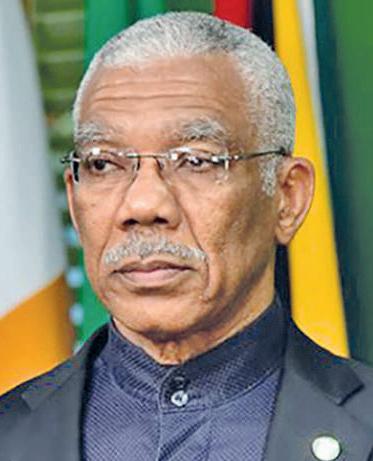
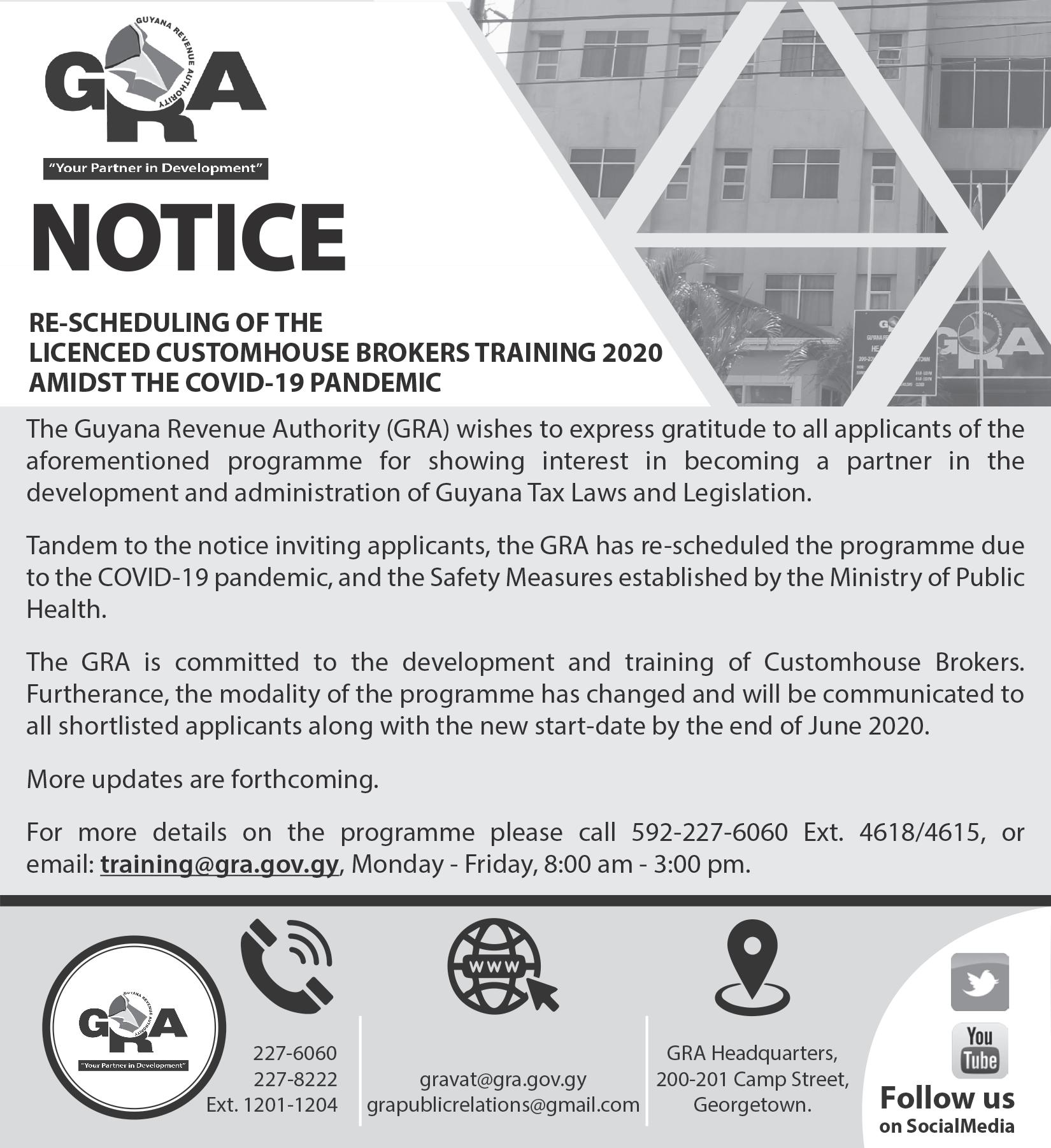
He chastised the APNU/ AFC which is bent on dragging out the process and extended congratulations to PPP/C on their win. Sharma had pointed out that the National Recount was carried out and from the votes counted, it is clear the PPP/C is the winner.
As such, he had urged that PPP/C Presidential Candidate, Dr Irfaan Ali be sworn in without delay. Sharma had also called the last 108 days exhausting and said that the people are starving and suffering due to the COVID-triggered economic slowdown.
Granger’s own sonin-law, former Business Minister Dominic Gaskin also made a statement on Friday in which he conceded that APNU/AFC lost to the PPP/C and called out his party’s leadership for fooling supporters.
And, incumbent Public Security Minister Khemraj Ramjattan was caught on a recording, conceding defeat to his Ministry staff, during a farewell speech he had given. In that speech, Ramjattan had acknowledged the PPP winning by some 15,000 votes and had told the gathering he was willing to move on.
So far, however, the coalition Government is in the Court of Appeal trying to have the impending declaration by GECOM blocked on the basis of unproven claims of dead and migrated voters. A decision is expected in the
case on Monday.

